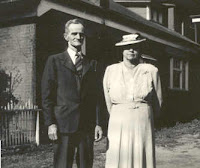Jesus and the poor
 Apparently there's a debate afoot about whether America, as a "Christian" nation, is not doing the Christian thing by ignoring its poor. The premise, according to a comment by TV personality Steve Colbert, is that this isn't what Jesus would do.
Apparently there's a debate afoot about whether America, as a "Christian" nation, is not doing the Christian thing by ignoring its poor. The premise, according to a comment by TV personality Steve Colbert, is that this isn't what Jesus would do.The conversation, I suspect, comes back to the Tea Party, which considers itself either Republican or part of the Christian Right, neither of which connects very well to poverty, according to liberals. Liberals, according to the Christian right, are actually "niggers and wetbacks." They don't actually say that because even the Christian right occasionally demonstrates some restraint.
Truth is, nearly everyone born in this country in the 20th century is aware of the principles of Christianity. Part of that is connecting the religion to the lives of the poor. Generally, however ... and correct me if I am wrong ... the main goal is salvation of the soul. Needing a sandwich at the time is optional.
My knowledge of biblical events is sufficient for me to understand how this happened and why it's become similar to "feed a fever, starve a cold." In other words, the Christian thing to do has been reformulated to say it's the Charitable thing to do. Christianity's origins have a vague relationship to helping the poor.
What it did have was a story, a schtick, a promotion, a gimmick. The religion needed numbers and, guess what? Lots of poor, even in the days of Jesus. They were getting the crappy end of the stick back then too.
So the scribes of the time constructed a personality for Jesus that fit the narrative, he being interested in helping the poor because God would be pleased with that. Something about the Meek inheriting the Earth ... or the story about the rich man, the eye of the needle, the Kingdom of Heaven. All subtle comments that said the wealthy were pretty well screwed because God didn't approve of that sort of lifestyle. (I wonder if the Russian czars thought they were actually "poor" compared to other people.)
The poor, naturally, found this Jesusian attitude to be a pretty good idea as well and decided to become Christians because, well ... Christianity promised that helping the poor would get everyone closer to Heaven. That's a nice side benefit for tossing an extra sheckel toward the poor. A free lunch AND eternal harp music.
As time turned, Christianity became more popular and the poor continued to join up, accepting what later became the Catholic Church's definition of Heaven. As time went on, Protestants bought into the Catholics' description of the Hereafter, only not drinking quite as much wine. (I have no idea if other people agree on this, but the non-Christians of America are screwed, as I see it.)
So here we are, saying Christians should be helping the poor and wondering why the Trumpians are against that. It's a nice gig, condemning people who don't have a good way of defending themselves.
What goes around, comes around and Jesus recognized that. If he'd promoted a religion that only the rich could join, well ... who'd join that?
But I do have a thought. We build six more aircraft carriers, hire poor people to keep them clean and operational ... and make really good use of our money. After all, it says it right on the front: In God We Trust.



Anyway, Jan says Jesus wasn't trying to start a church, but he was trying to reform one. No argument on that score. Reinventing the process from the ground up would clearly be reform.
ReplyDelete